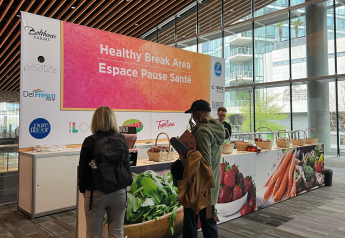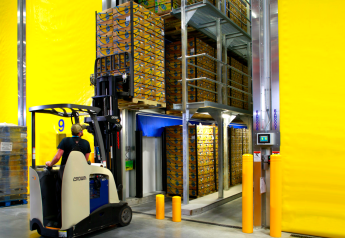Bumps ahead, but Mexico exporters, U.S. importers optimistic

TUBAC, Ariz. - The Trump administration's trade and immigration policies might concern companies and officials that depend on the flow of fruits and vegetables from Mexico, but the history and scope of relationships with the country are too strong to be shaken by new regulations.
That message was common throughout comments made by speakers at the Fresh Produce Association of America's 2017 Spring Policy Summit at the Tubac Golf Resort and Spa Feb. 28-March 1. The slate of speakers focused on trade and food safety issues, including steps to ease trade locally, such as improvement to the Nogales, Ariz., Mariposa Port of Entry.
The FPAA and the Greater Nogales and Santa Cruz County Port Authority are adding a cold storage inspection area to encourage more imports of temperature-sensitive items such as avocados and berries, said association president Lance Jungmeyer.
Christopher Teal, Consul General for the U.S. Consulate in Nogales, Mexico, said while issues with Mexico face a "bit of a political headwind," the two countries' cross-border business for all industries amounts to $1.5 million each minute, making the U.S. Mexico's largest trading partner.
"There are going to be bumps on the road," Teal said. "One thing I think is certain, one thing you cannot escape when you look at our relationship, this two-way relationship, is how successful it's been. I think a lot of people ignore or don't know about a lot of the cooperation, and how one part of the cooperation leads to another."
Teal's counterpart in Nogales, Ariz., Consul General Ricardo Santana, said Mexico is agreeable to open talks on "modernizing" NAFTA to strengthen the "indestructable" trade relations between the two countries.
"(Trade relations) will continue to grow deeper and better in the coming decades, and trying to disrupt these new dynamics will only be a temporary and futile attempt to slow the trade that North American countries have created together," Santana said.
Jungmeyer also said that based on growth and increased opportunities for imports from Mexico to the U.S. that the industry sees only a path forward, not a regression.
"We're working to make sure that through whatever processes are going on in the government right now, the value (of trade with Mexico) is recognized, that we recognize what Mexico brings in terms of food supply to the United States," Jungmeyer said. "It's a complementary relationship, and it's been that way for years."
Food Safety
As U.S. companies continue to learn about the Food Safety Modernization Act and steps to compliance, importers are working with suppliers in Mexico and Canada to ensure they're meeting new requirements, including the Foreign Supplier Verification Program. Details of that program were discussed during a "tabletop" question-and-answer session led by Dominic Veneziano, president of Veneziano Consulting.
As the former director of Import Operations for the Food and Drug Administration, Veneziano counseled attendees on how they - and their staff - should prepare for FDA inspections.
Representatives from the U.S., Mexico and Canada detailed developments by their governments on bringing food safety standards to make imports/exports easier.
Edmundo Garcia, director of the Latin American office for the FDA, spoke about advances through the Mexico Produce Safety Partnership, signed by the FDA in 2014. The program has a number of working groups, including inspections, training and education/outreach.
Mexico and Canada have established a system of recognition of food safety systems, and the FDA and Canada signed a similar agreement in 2016.
Garcia said Mexico's food safety department, SENASICA, has a strong foundation of working with the FDA and "we're moving in that direction" in reference to an agreement on comparable food safety standards.
Tammy Switucha, director of domestic food safety systems for the Canadian Food Inspection Agency, detailed steps the agency has taken with the Safe Food for Canadians Act, passed by Parliament in 2012. The act is an outcomes-based model, focusing on high-risk areas.
"They're telling the regulated parties (produce growers/suppliers) what the outcome should look like, but not how to get there," said Switucha, adding that the law streamlined more than a dozen food safety laws and regulations into a single law.







